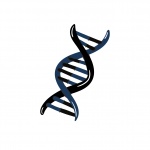

















In order to be eligible to apply to this program, candidates must have passed Class 12 or equivalent from a recognized board with Physics, Chemistry and Biology/Home Science as compulsory subjects with an aggregate of at least 50% marks (45% for candidates belonging to SC/ ST/ OBC Candidates). Admission Process: Depends on the university. Both merit-based and entrance based admission modes are available. Top BSc Food Technology Entrance Exams: 1.Central Food Technology Research Institute entrance exam. 2.Indian Institute of Crop Processing Technology Entrance Exam
M.Sc. Food Science and Nutrition is a 2-year postgraduate course in the field of food production and development. The course offers advanced learning in the discipline of food science to familiarize eligible candidates in the science of food safety and nutrition. Students are taught on an advanced level about the importance of health, food quality and safety, and mechanisms to tackle growing food production and management. It involves components of study designed to familiarize students with the intricacies involved in food production and processing, starting from growing, harvesting and up to cooking and consuming. The course includes fundamental and related lessons in Chemistry, Biology, Nutrition, and also Chemical Engineering.
1. Andhra University, Visakhapatnam 2. Mahatma Gandhi University, Kottayam 3. JSS Academy of Higher Education and Research, Mysore 4. Govind Ballabh Pant University of Agriculture and Technology, Pantnagar 5. Calicut University, Calicut 6. University of Agricultural Sciences, Dharwad 7. Lady Irwin College, New Delhi 8. Institute of Home Economics, New Delhi
Dietitians and nutritionists evaluate the health of their clients. Based on their findings, dietitians and nutritionists advise clients on which foods to eat—and which to avoid—to improve their health. Many dietitians and nutritionists provide customized information for specific individuals. For example, a dietitian or nutritionist might teach a client with diabetes how to plan meals to balance the client's blood sugar. Others work with groups of people who have similar needs. For example, a dietitian or nutritionist might plan a diet with healthy fat and limited sugar to help clients who are at risk for heart disease. They may work with other healthcare professionals to coordinate patient care. Dietitians and nutritionists who are self-employed may meet with patients, or they may work as consultants for a variety of organizations. They may need to spend time on marketing and other business-related tasks, such as scheduling appointments, keeping records, and preparing educational programs or informational materials for clients.